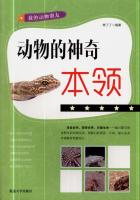Exchange more interesting common sense with your classmates.
译文
为了防止把自己消化掉,你的胃不得不每隔两周就造出一层新的粘膜。
猫头鹰是唯一能看见蓝色的鸟类。
在70年的生命中,你大约要花23年的时间睡觉。
当你打喷嚏时,人们会说“上帝保佑你”,那是因为你的心脏停跳了一毫秒。
猪有变成酒鬼的能力。
猫的每只耳朵上有32块肌肉。
所有的北极熊都是左撇子。
蝴蝶用脚品尝味道。
蝙蝠用超声波识别猎物发出的震动。
人们头上通常有10万到15万根头发。
你的头发每个月会长10至13毫米。
指甲每个月会长3毫米。
在太阳系中,地球是个幸运的星球,因为它有适宜的温度可以使水再循环。
练习
和同学交流其他更多的趣味常识。
09 Whether Fish have Nostrils 鱼嘴上方的两个孔是鼻孔吗
Fish have holes that look like nostrils, does that mean they can smell?
Smell, or olfaction, as scientists call it, is an important sense for many fish. Those little holes that look like nostrils are called nares. Nares don’t lead to the throat the way nostrils do in mammals, but open up into a chamber lined with sensory pads. Not all fish move water in and out through these nares in quite the same ways, but key to a strong sense of smell for fish is the ability to move water rapidly over these sensory pads. Some fish can pick up chemical signals when immobile by pumping water through their olfactory system via tiny hairs called cilia. Other fish can pump water by a muscular movement. Some fish, such as smaller species of mackerel, have an olfactory system that requires them to swim in order to get water moving through their nares. When the sensory pads pick up chemical signals, they transmit them to the fish’s forebrain, which interprets the signal and incites the fish to respond appropriately.
If the chemical signal food, the fish will pursue the food. Or, if the chemical signal danger, they will flee. But fish use chemical cues in all sorts of ways. For instance, a large group of fishes release a chemical when they’re wounded that incites other fish to flee. And then there are salmon, which are known for a superb sense of smell that enables them to sense the stream where they were born, so that they may return to it to spawn.
Vocabulary 词汇
nostril ["n?stril; -tr?l] n. 鼻孔
olfaction [?l"f?k??n] n. 嗅觉
chamber ["t?eimb?] n. (身体或器官内的)室,膛,房间,会所
sensory ["sens?ri] adj. 感觉的,知觉的,传递感觉的
immobile [i"m?ubail, -bi:l] adj. 固定的,不变的,稳定的
interpret [in"t?:prit] vt. 说明,口译;
vi. 解释,翻译
incite [in"sait] vt. 煽动,激励,刺激
superb [sju"p?:b, s?-] adj. 极好的,华丽的,宏伟的
Practice
Do you know how the fish breathe and swim?
译文
鱼的头上有两个孔,看起来像是鼻孔,这说明鱼能闻味道吗?
对很多鱼类来说,嗅觉是一种很重要的感官。与哺乳动物不同,鱼类的鼻孔不与喉咙相通,而是形成了单独的一个腔,里面与嗅觉感应组织相连。鱼并不都是以相同的方式让水在自己的鼻孔中进出的,但嗅觉敏锐与否的关键在于鱼是不是有能力让水快速通过自己的嗅觉感受器官。有些鱼,在静止不动时可以通过一种叫作纤毛的小绒毛让水通过自身的嗅觉器官,来接收(水中的)化学信号。而有些鱼则是通过肌肉运动来实现这一过程的。还有的鱼,如小型鲭鱼,则需要通过游动来让水通过它们的呼吸系统。当嗅觉感受组织接收到了化学信号,就会把这些信号传递给前脑,前脑则负责对信号进行分析,让鱼对此做出恰当的反应。
比如说,如果这个化学信号是食物,鱼就会去捕食。或者,化学信号是危险,它们就会逃跑。但化学物质所提供的线索对鱼来说有多种用途,例如,当受伤时,有很多种鱼会释放一种化学物质,让其他鱼逃跑。因嗅觉出众而闻名于世的大马哈鱼,能够通过水流来嗅出它们出生的地方,以便能重归故里进行繁衍。
练习
鱼是怎么呼吸的,怎么游泳的?谈谈你对它们的了解。
10 Squirrel VS. Rattlesnake 小松鼠靠什么来抵御大响尾蛇
So let’s say you’re a common ground squirrel. Just for a moment, pretend you’re minding your own business, searching for seeds, doing whatever it is that squirrels like to do. Then, suddenly, out from behind a bush slithers a huge, sinister rattlesnake, coiled and ready to strike. What do you do?
Obviously, you run away, play dead, or perhaps negotiate a deal of some sort. In any case, given that you’re a furry, gentle squirrel and the snake is a deadly, rattling killer, whatever you do, you don’t stand your ground and fight. Right?
Wrong! Calling upon the instincts passed down from your ancient squirrel ancestors, you rush at the snake, kick sand in its face, try to bite its tail, and then turn your back on it and whip your tail around.
Now why on earth, you might be wondering, would my squirrel self take such suicidal measures? Kicking sand and biting might do some good, but tail waving? Why further taunt a venom-fanged snake already bent on violence?
As you may have guessed, there is a method to such madness. When confronted by a rattlesnake, squirrels’ tails heat up, getting hotter by almost four degrees Fahrenheit. The infra-red sensors built into rattlesnakes’ eye sockets sense this increase in temperature as a big, waving, fiery blotch.
This alarming display, plus the fact that squirrels are partially immune to rattlesnake venom, actually gives the squirrel a distinct advantage when it confronts a rattlesnake. More often than not, the rattlesnake will slither away in search of a less intimidating foe.
Vocabulary 词汇
squirrel ["skw?:r?l, "skwi-, "skw?-] n. 松鼠,松鼠毛皮
sinister ["sinist?] adj. 阴险的,凶兆的,灾难性的,左边的
negotiate [ni"ɡ?u?ieit, -si-] vt. 商议,越过,转让;
vi. 谈判,交涉
instinct ["insti?kt] n. 本能,直觉,天性;
adj. 充满着的
tail [teil] n. 尾部,踪迹,辫子,燕尾服
socket ["s?kit] n. 插座,窝,穴;牙糟;
vt. 给……配插座
venom ["ven?m] n. 毒液,恶意;
vt. 放毒,使有毒
Practice
1.Why the squirrel waving tail to rattlesnake?
2.Compare the squirrel with ostrich, please share your opinion.
译文
假如你是一只普通的松鼠,在专注于自己的事情,寻找种子吃,或者在做任何松鼠喜欢做的事。突然,从你身后的灌木丛中爬出了一条巨大的、凶恶的响尾蛇。它盘绕起身体,准备好了对你进行攻击。你该怎么办呢?
显然,你会选择逃跑,装死,也可能会与它谈谈条件。鉴于自己是一只毛茸茸的、温顺的松鼠,而响尾蛇则是致命的杀手,无论如何你都不会站在原地与之进行搏斗,对吧?
你错了!从祖先那里继承的本能会让松鼠冲向响尾蛇,向它的脸上踢沙子,试图咬它的尾巴,接着转过身来,摇动自己的尾巴。
你可能会感到不解,为何松鼠会选择这种以卵击石的做法?踢沙子和咬尾巴可能还管点用,但摇尾巴又是意欲为何呢?面对已经俯身做好攻击准备的、带有毒牙的蛇,松鼠为何还要进行挑衅呢?
可能你也猜到了,松鼠的这种看似疯狂的做法其实是有它的道理的。当遇到响尾蛇时,松鼠的尾巴会变热,温度上升大约4度(华氏)。而通过眼窝中的红外线感应组织,响尾蛇感受到的则是一个大的,摆动的红点。
这种让蛇方寸大乱的表演,再加上松鼠对响尾蛇的毒液有一定的免疫力,让松鼠在遇到响尾蛇的时候具有了本能优势。多数情况下,响尾蛇会爬开,去寻找不这么吓人的猎物。
练习
1.面对响尾蛇时,松鼠为什么要摇尾巴?
2.比较松鼠和鸵鸟在面对敌人时的行为,谈谈你的想法。
1.To heat up tails, and confused rattlesnake.















